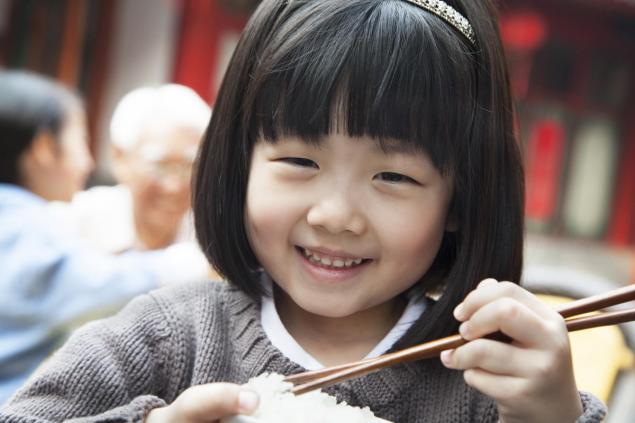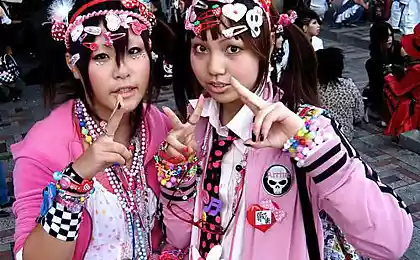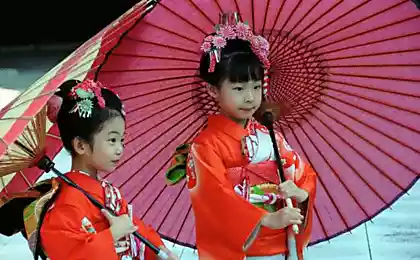214
Why do Japanese people not go to visit and use urns?
It is known that the culture of the Land of the Rising Sun is filled with many unusual differences from the modern basis of life of European and Slavic cultures. It is not surprising that many tourists are surprised by the way life in Japan works.
An unprepared traveler on arrival at the monastery of cherry blossoms may even think that he accidentally got into a parallel universe.
Some customs and habits of the Japanese actually make you gasp with amazement. That's what the editorial board is about. "Site" He will tell his most curious readers today.

Are you ready to open the door to Japan? Then let's go!
The first thing that catches the eye of foreign visitors is, of course, the frantic rhythm in which the Japanese live. Rarely on the streets you can find a person sitting idle. It is not surprising that today Japan is among the ten most progressive countries in the world.

It takes almost all the time for Japanese citizens. The latest official figures indicate that the Japanese work more than 60 hours a week (even though no one pays them extra for processing).
Another thing about the Japanese job is how the pay system works. It does not matter how hard a person works on the performance of their duties and how much better the rest cope with the implementation of work functions. A solid status and a significant increase in salary here can be expected only after working in one place for more than five years.
The second interesting feature of the indigenous people of Japan is their attitude to eating. Despite the load, the true Japanese always have time for a full meal.

It would seem that with such a rhythm of life, it would be good to have at least something to eat on the go. But that's not the way it is. Moreover, such behavior is strictly condemned by others.

As for Japanese food, almost all dishes include meat products. So a vegetarian tourist is unlikely to get acquainted with the traditional cuisine of this wonderful country.
The next thing that a tourist who dreams of seeing the splendor of Fuji is sure to know is how the Japanese build relationships with foreigners.
Locals treat their home as a temple, and do not let anyone into it. Therefore, ardent fans of couchsurfing will find it difficult to find shelter here.

Although the Japanese are a friendly people, they have been taught to build personal boundaries since childhood.
Usually, friendly meetings in Japan are held in public places. As for the invitation to visit, it is often received only by the closest relatives (and then only in special cases).
Many visitors are also baffled by the household habits of the Japanese. For example, local residents do not put garbage in garbage cans, as is customary in our country, but in special heaps just on the street or independently dispose of it at home.

However, the absence of landfills does not mean that the streets of Tokyo and other cities are constantly littered with garbage. On the contrary, such a system allows you to keep the environment clean, because all these piles of garbage are regularly taken out by specially hired workers.
Another feature of life in Japan is that almost all entertainment here is designed for tourists. The fact is that the indigenous people simply do not have enough time to rest (in the classical sense).

Those who are not engaged in work should devote their free time to the education of children and self-development, as well as to housekeeping.
The Japanese themselves are quite calm about this situation, as they believe that entertainment is a waste of time.
In the end, I would like to warn about some of the norms of behavior adopted in Japan.
Health is taken very seriously here. So at the slightest sign of a cold, a person should not appear in public without a protective mask.
But blow your nose in public places and not at all. Such behavior is regarded by others as disrespect.

It’s time to say, “Let’s see you again!” We hope you enjoyed spending time with us.
Tell me what surprised you the most about Japanese life. We look forward to your comments!
An unprepared traveler on arrival at the monastery of cherry blossoms may even think that he accidentally got into a parallel universe.
Some customs and habits of the Japanese actually make you gasp with amazement. That's what the editorial board is about. "Site" He will tell his most curious readers today.

Are you ready to open the door to Japan? Then let's go!
The first thing that catches the eye of foreign visitors is, of course, the frantic rhythm in which the Japanese live. Rarely on the streets you can find a person sitting idle. It is not surprising that today Japan is among the ten most progressive countries in the world.

It takes almost all the time for Japanese citizens. The latest official figures indicate that the Japanese work more than 60 hours a week (even though no one pays them extra for processing).
Another thing about the Japanese job is how the pay system works. It does not matter how hard a person works on the performance of their duties and how much better the rest cope with the implementation of work functions. A solid status and a significant increase in salary here can be expected only after working in one place for more than five years.
The second interesting feature of the indigenous people of Japan is their attitude to eating. Despite the load, the true Japanese always have time for a full meal.

It would seem that with such a rhythm of life, it would be good to have at least something to eat on the go. But that's not the way it is. Moreover, such behavior is strictly condemned by others.

As for Japanese food, almost all dishes include meat products. So a vegetarian tourist is unlikely to get acquainted with the traditional cuisine of this wonderful country.
The next thing that a tourist who dreams of seeing the splendor of Fuji is sure to know is how the Japanese build relationships with foreigners.
Locals treat their home as a temple, and do not let anyone into it. Therefore, ardent fans of couchsurfing will find it difficult to find shelter here.

Although the Japanese are a friendly people, they have been taught to build personal boundaries since childhood.
Usually, friendly meetings in Japan are held in public places. As for the invitation to visit, it is often received only by the closest relatives (and then only in special cases).
Many visitors are also baffled by the household habits of the Japanese. For example, local residents do not put garbage in garbage cans, as is customary in our country, but in special heaps just on the street or independently dispose of it at home.

However, the absence of landfills does not mean that the streets of Tokyo and other cities are constantly littered with garbage. On the contrary, such a system allows you to keep the environment clean, because all these piles of garbage are regularly taken out by specially hired workers.
Another feature of life in Japan is that almost all entertainment here is designed for tourists. The fact is that the indigenous people simply do not have enough time to rest (in the classical sense).

Those who are not engaged in work should devote their free time to the education of children and self-development, as well as to housekeeping.
The Japanese themselves are quite calm about this situation, as they believe that entertainment is a waste of time.
In the end, I would like to warn about some of the norms of behavior adopted in Japan.
Health is taken very seriously here. So at the slightest sign of a cold, a person should not appear in public without a protective mask.
But blow your nose in public places and not at all. Such behavior is regarded by others as disrespect.

It’s time to say, “Let’s see you again!” We hope you enjoyed spending time with us.
Tell me what surprised you the most about Japanese life. We look forward to your comments!























